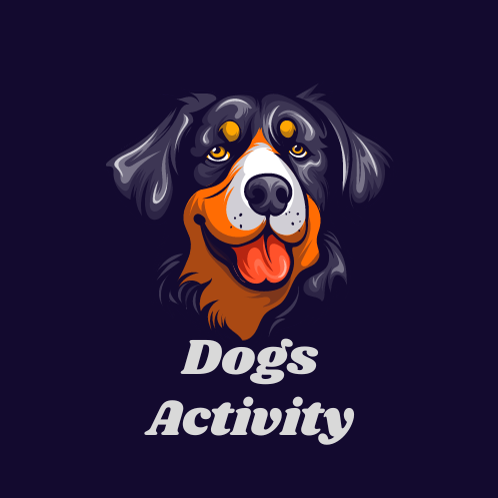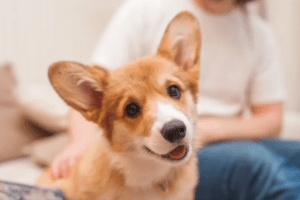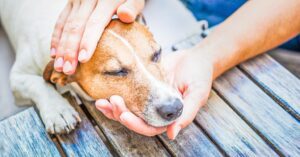
Introduction:
Corn, a versatile and widely consumed grain, raises questions for pet owners regarding its suitability for canine and feline companions. The queries range from “Can dogs eat corn cobs?” to “Can cats have corn?” and extend to related items like tortillas, grits, and cornbread. In this article, we’ll explore the intricacies of corn in pet nutrition, deciphering whether it’s a safe treat or a potential hazard. From coconut corn huskies to the digestion of raw corn, we’ll delve into the various aspects of corn consumption for our beloved pets.
Understanding Corn and Its Nutritional Composition:
Corn, a cereal grain, is a staple in many human diets, offering a rich source of carbohydrates, fiber, and various vitamins and minerals. While corn provides nutritional benefits for humans, the digestive systems of dogs and cats differ, prompting the need for a closer look at its suitability for our furry friends.
Can Dogs Eat Corn Cobs?
The question of whether dogs can eat corn cobs is a topic of concern for many pet owners. Corn cobs, with their hard and indigestible nature, pose a potential risk to dogs. If ingested, corn cobs can lead to intestinal blockages, a serious condition requiring immediate veterinary attention.
It’s essential to recognize that dogs lack the digestive enzymes needed to break down tough plant materials like corn cobs. The risk of obstruction increases when dogs attempt to chew and swallow large pieces of the cob. To ensure the safety of your canine companion, it is best to avoid giving them corn cobs altogether.
Coconut Corn Husky: A Play on Words or a Nutritional Concern?
The term “coconut corn husky” might trigger curiosity, but it’s crucial to clarify that there is no specific breed or food item known by this name. However, it highlights the importance of addressing coconut and corn-related queries for husky breeds and all dogs.
Coconut, often used in various forms, including oil and shredded coconut, can be a safe and nutritious addition to a dog’s diet when given in moderation. The key is to provide coconut in small amounts, as it is high in fat. As with any new addition to a pet’s diet, consulting with a veterinarian is recommended to ensure it aligns with the specific health needs of your dog.
Can Dogs Eat Tortillas?
Tortillas, a common component of many human meals, pose a similar question for pet owners: can dogs have tortillas? The answer lies in the ingredients. Plain, simple tortillas made from basic flour, water, and salt may be offered to dogs in moderation. However, caution is advised when it comes to flavored or seasoned tortillas, as added ingredients like garlic or onion can be harmful to dogs.
It’s important to note that while plain tortillas may be an occasional treat, they should not replace a balanced and nutritionally complete dog food. Treats, including tortillas, should constitute no more than 10% of a dog’s daily caloric intake to avoid nutritional imbalances.
Can Dogs Eat Grits?
Grits, a Southern staple made from ground corn, raise the question of whether dogs can eat grits. In moderation, plain and cooked grits can be a safe addition to a dog’s diet. However, it’s crucial to serve grits without added ingredients such as butter, salt, or spices, which may be harmful to dogs.
As with any new food introduction, pet owners should monitor their dog for any adverse reactions. If digestive upset or allergic symptoms occur, it’s advisable to discontinue the inclusion of grits in the dog’s diet and consult with a veterinarian.
Can Cats Have Corn?
While dogs and cats share some similarities in their ability to digest certain foods, the question of whether cats can have corn requires specific attention. Cats are obligate carnivores, meaning their diet primarily consists of meat. While a small amount of well-cooked corn may not be harmful to cats, it does not offer significant nutritional value for them.
The digestive system of cats is not well-equipped to process plant-based carbohydrates efficiently. Therefore, while a minimal amount of corn might not pose an immediate threat, it’s not an ideal component of a cat’s diet. If you’re considering introducing any new food to your cat’s routine, consulting with a veterinarian is crucial to ensure it aligns with their specific dietary needs.
Can Dogs Eat Cornbread?
Cornbread, a popular accompaniment to many meals, prompts the question of whether dogs can eat cornbread. The answer depends on the ingredients used to make the cornbread. Plain, unsweetened cornbread made with minimal additives may be offered to dogs in small amounts as an occasional treat.
However, caution should be exercised with cornbread variations that contain harmful ingredients such as sugar, artificial sweeteners, or excessive amounts of salt. Additionally, cornbread with added ingredients like onions or garlic should be strictly avoided, as these can be toxic to dogs.
Can You Eat Raw Corn?
The question of whether humans can eat raw corn is often posed in the context of salads or salsas. When it comes to dogs, the issue is not about whether they can eat raw corn but rather whether it’s beneficial for them. Dogs can consume small amounts of raw corn, but it’s essential to consider their ability to digest it.
While some dogs may enjoy the crunchiness of raw corn, others may find it challenging to digest due to the cellulose in the corn kernels. Chewing the corn thoroughly or even lightly cooking it can make it easier for dogs to digest. As with any new food, it’s advisable to introduce raw corn in small quantities and monitor the dog for any adverse reactions.
Can Dogs Eat Corn Cob?
The issue of dogs eating corn cobs has been addressed earlier, emphasizing the potential dangers associated with their indigestible nature. However, the question of whether dogs can eat corn without the cob arises. Dogs can safely consume small amounts of plain, cooked corn without the cob. It’s crucial to ensure that the corn is free from seasonings, butter, or other additives that may be harmful to dogs.
While corn can provide dogs with some essential nutrients, it should be viewed as an occasional treat rather than a primary component of their diet. As with any treat, moderation is key to preventing nutritional imbalances and potential digestive issues.
Can Dogs Eat Corned Beef?
The question of whether dogs can eat corned beef raises concerns about the salt content and potential additives in the meat. Corned beef, typically cured with large amounts of salt and spices, is not an ideal food choice for dogs. Excessive salt intake can lead to sodium ion poisoning, causing symptoms such as vomiting, diarrhea, and, in severe cases, seizures.
If you wish to share a meaty treat with your dog, it’s advisable to offer plain, cooked beef without any added seasonings or curing agents. Before incorporating any new food into a dog’s diet, consulting with a veterinarian is recommended to ensure it aligns with their specific nutritional needs.
Is Corned Beef Okay for Dogs?
Considering the high salt content and potential additives in corned beef, it is not considered okay for dogs. While dogs can safely consume plain, cooked beef as part of a balanced diet, the curing process and additional seasonings used in corned beef make it a less suitable option. As responsible pet owners, it’s crucial to prioritize the health and well-being of our canine companions by choosing foods that align with their nutritional requirements.
Can You Eat Corn Raw?
For humans, eating corn raw in salads or as a snack is a common practice. However, when it comes to dogs, the question shifts to whether it’s safe for them to eat raw corn. Dogs can consume small amounts of raw corn, but it’s essential to consider their individual ability to digest it.
While some dogs may tolerate raw corn well, others may experience difficulty digesting the cellulose in the kernels. Lightly cooking the corn or even partially steaming it can make it easier for dogs to digest. As always, it’s advisable to introduce new foods gradually and monitor for any adverse reactions.
Why Does Corn Not Digest?
The challenge of digesting corn lies in its cellulose content. Cellulose is a complex carbohydrate found in the cell walls of plants, and dogs lack the necessary enzymes to break it down efficiently. As a result, corn may pass through a dog’s digestive system relatively intact.
The undigested nature of corn does not necessarily mean it is harmful to dogs in moderate amounts. However, it underscores the importance of serving corn in a form that is easier for dogs to digest, such as cooked or lightly steamed.
Can Dogs Have Tortillas?
The question of whether dogs can have tortillas has been addressed earlier, emphasizing that plain, simple tortillas made from basic flour, water, and salt may be offered to dogs in moderation. However, caution is advised with flavored or seasoned tortillas, as added ingredients like garlic or onion can be harmful.
It’s essential to view tortillas as an occasional treat rather than a staple in a dog’s diet. Monitoring portion sizes and avoiding tortillas with potentially toxic ingredients will help ensure the safety and well-being of your canine companion.
Conclusion:
In the intricate world of pet nutrition, the questions surrounding the consumption of corn and related products can be complex. From the potential dangers of corn cobs to the safety of tortillas and the appropriateness of corned beef, pet owners must navigate a maze of information to make informed decisions about their pets’ diets.
While dogs can safely enjoy certain corn products in moderation, such as plain corn, cooked corn, and simple tortillas, caution is advised with items like corn cobs and flavored corn products. It’s crucial to prioritize the overall health and well-being of our furry friends by consulting with veterinarians, monitoring for adverse reactions, and making informed choices about the foods we share with them.
As responsible pet owners, we play a vital role in shaping our pets’ diets to meet their unique nutritional needs. By staying informed and making thoughtful decisions, we can ensure that our canine and feline companions enjoy a balanced and healthy diet that contributes to their overall happiness and longevity.



